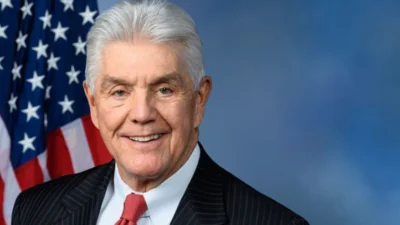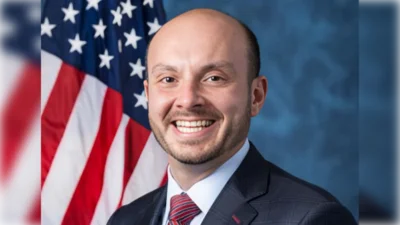Washington, D.C. -Today, Rep. Raja Krishnamoorthi, the Chairman of the Subcommittee on Economic and Consumer Policy, issued the following statement after the Department of Health and Human Services announced that it will terminate its contract for ventilators with Philips Respironics-a result of the Subcommittee’s staff report detailing the hundreds of millions of dollars wasted:
“American taxpayers deserve to have their money well spent. The Subcommittee’s investigation revealed that incompetent negotiations by top Trump Administration officials, like Peter Navarro, wasted hundreds of millions of taxpayer dollars. This week, we clawed back more than $400 million from pandemic profiteers, and we’re coming for more."
Chairman Krishnamoorthi launched his investigation on April 15, 2020, and issued a staff report on July 31, 2020, finding:
* In 2014, the Obama Administration entered into a contract with Philips that would have supplied the nation’s stockpile with 10,000 ventilators by June 2019. Development was initially delayed, but the Obama Administration gave Philips an extension that would have required the company to provide all of the ventilators by November 2019-in time to be deployed for this pandemic.
* Philips’ delays continued through 2017 and 2018, but the Trump Administration mismanaged Philips’ repeated failures to meet contractual requirements. It gave Philips three additional extensions, the last of which allowed for final delivery of the ventilators to be delayed until June 2021. Had the Trump Administration held Philips to the terms of the Obama-era contract, the country would have had 10,000 ventilators that it needed when the coronavirus crisis struck.
* On Jan. 21, 2020, when the first coronavirus case was reported in the United States, Philips approached the Trump Administration about accelerating the delivery of ventilators under its existing contract. The Trump Administration ignored this opportunity, and for six weeks, it did not respond to Philips’ offer.
* Finally, in March 2020, the Trump Administration responded, but rather than demand that Philips meet the deadlines required by its existing contract, or move them up to address the pressing need, the Trump Administration agreed on March 11, 2020, to another extension, removing all delivery deadlines until September 2022. Philips secured the extension by suggesting it would actually help move up delivery.
* The Trump Administration failed to question Philips and granted the modification, which made the Obama-era contract useless for aiding the country during this pandemic. The Administration never asked Philips to produce more ventilators under the existing contract.
* The Trump Administration, represented by Peter Navarro and other senior officials in the White House, negotiated a new contract with Philips. The Administration agreed to pay Philips almost five times the price than under the previous contract. The ventilators purchased under the new contract (called Trilogy EV300s) were functionally identical to those required under the previous contract (called Trilogy Evo Universals), but the Trump negotiators appeared gullible and conceded to Philips on all significant matters, including price. The documents show that the Administration accepted Philips’ first offer without even trying to negotiate a lower price.
* As a result, the federal government overpaid for ventilators-no American purchaser paid more than the U.S. government. Between December 2019 and May 2020, Philips took orders for 5,339 other Trilogy EV300 ventilators from 92 different purchasers in the United States. While the Trump Administration paid $15,000 per ventilator, some small purchasers, buying as few as one unit, were able to negotiate prices as low as $9,327 per unit.









